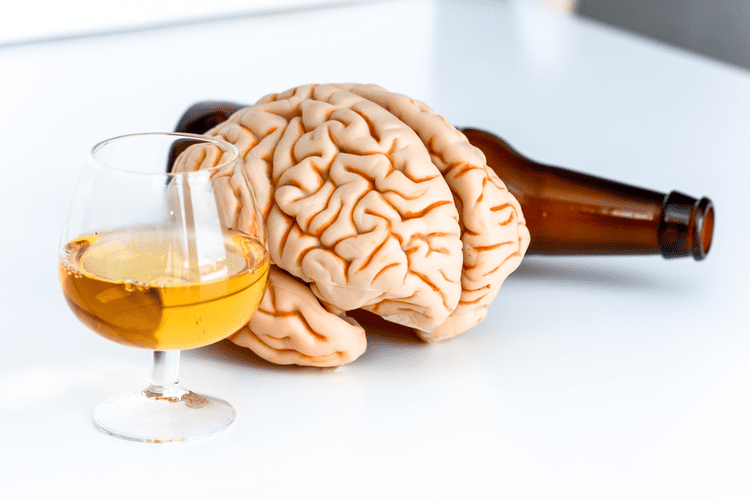GABA has particular binding sites available for ethanol, thus increasing the inhibition of the central nervous system when present. Chronic ethanol exposure to GABA creates constant inhibition or depressant effects on the brain. Ethanol also binds to glutamate, which is one of the excitatory amino acids in the central nervous system. When it binds to glutamate, it inhibits the excitation of the central nervous system, thus worsening the depression of the brain. Behavioral treatment programs are helpful for people who want to quit drinking. These programs involve working with a team of mental health professionals in a group and individual setting.
- In severe cases, withdrawal can lead to rapid heart rate, fever, seizures or delirium tremens (DTs) and potentially death.
- However, if you have a seizure disorder or epilepsy, you also face risks when drinking alcohol—both from the increased risk of seizure activity and potential interactions with seizure medications.
- Nevertheless, even those patients may benefit from treatment in the long term, because repeated withdrawal episodes may enhance the brain’s susceptibility to the hyperexcitability that occurs during AW.
- The dangerous withdrawal symptoms that are more likely through kindling include seizures, heart problems, and death.
- Getting treatment early can resolve the pattern of alcohol abuse before the individual experiences impaired health, compromised safety, and other negative effects on his or her quality of life and relationships.
DTs is extremely dangerous and in western medicine, it is deemed a “medical emergency” by healthcare workers. The mortality rate of DTs, when left untreated, is a staggering 37% which should illustrate just how lethal a condition it is. There have been many effective treatments developed in the last few decades which greatly reduce the dangers. This most likely tends toward the lower end (1-4%) of the scale, but further definitive studies are needed to hone in on a more precise number. Consequently, greater emphasis may now be placed on developing strategies to facilitate long-term sobriety.
Prevention of further drinking
While their risk of experiencing alcohol withdrawal seizures is high, there are a number of medications and long-term treatments that can remove this danger. You may need to be sedated for more than a week until the alcohol withdrawal symptoms go away. And a doctor may use brain-imaging techniques to monitor treatment over time. Heavy alcohol use can lead to seizures, especially when you stop drinking and start to enter a period of withdrawal.

Fetal alcohol syndrome can occur when a person is exposed to alcohol before birth. Up to 46 percent of people with alcohol-related myopathy showed noticeable reductions in strength compared with people without the condition. Alcoholic neuropathy occurs when too much alcohol damages the peripheral nerves. This can be permanent, as alcohol can cause changes to the nerves themselves. Deficiencies in B6 and B12, thiamine, folate, niacin, and vitamin E can make it worse.
What Are Alcohol Withdrawal Seizures?
The dangers posed by these seizures should not be taken lightly, and there are safe and effective treatments available. All that is required to safely stop using alcohol is the willingness to ask for help. AW syndrome varies significantly among alcoholics in both its clinical manifestations and its severity. These manifestations1 can range from mild insomnia to severe consequences, such as delirium tremens (DT’s) and even death. Substantial variability also exists in the incidence with which symptoms occur in various drinkers. Some people who regularly consume alcohol never experience any withdrawal symptoms.

Hyperventilation may occur during acute withdrawal, leading to disturbed blood chemistry and resulting in symptoms that may be indistinguishable from those that occur in anxiety disorders (Kushner et al. 1990). Some researchers have hypothesized that repeated AW may predispose alcoholics to certain anxiety disorders through the process of kindling (see the article by Becker, p. 25–33) (Lepola 1994). Approximately 80 percent of alcoholic patients recovering from Wernicke’s syndrome exhibit the selective memory disturbance of Korsakoff’s syndrome (Victor et al. 1989). Symptoms of Korsakoff’s syndrome include severe amnesia for past events, along with impaired ability to commit current experience to memory. The patient often recites imaginary experiences to fill gaps in his or her memory.
What is alcohol withdrawal?
It is produced naturally through the breaking down of sugars in plants and fruit. Alcohol can manipulate chemicals in your brain to create psychoactive effects. The main ways to prevent alcohol withdrawal are to avoid alcohol altogether or to get professional help as soon as possible if you think you’re developing alcohol use disorder. It affects about 50% of people with alcohol use disorder who stop or significantly decrease their alcohol intake. AUD is the most common substance use disorder in the U.S., affecting 28.8 million adults. The first-line treatment for DTs is a combination of medication, medical monitoring, and nutritional supplements, either oral or intravenous.
Florida alcohol addiction treatment is the first step in overcoming alcohol abuse and starting the new life you or your loved one deserves. Withdrawal seizures usually start, although it’s possible for seizures to occur as early as two hours after the last drink. Risk of seizures is particularly high in people who have undergone alcohol detox several times before.
Cardiovascular Complications
Alcoholics tend to have nutritional deficiencies and thus should be provided with folic and thiamine supplements. By Sarah Bence, OTR/L
Sarah Bence, OTR/L, is an occupational therapist and freelance writer. She specializes in a variety of health topics including mental health, dementia, celiac disease, and endometriosis. If you don’t already have a why does alcohol withdrawal cause seizures supportive network, you can make new connections by joining social media communities dedicated to alcohol-free living. It’s important to be honest about your alcohol use — and any other substance use — so your provider can give you the best care. Use of this website and any information contained herein is governed by the Healthgrades User Agreement.
In fact, people suffering from chronic alcohol abuse increase their risk of developing seizures when they suddenly stop drinking. A study by The Recovery Village found heavy drinkers were 45% more likely than light or moderate drinkers to experience seizures during withdrawal and 73% more likely to have had a seizure in general. Binge drinking can cause alcohol withdrawal seizures in people, even for individuals who do not have epilepsy. Regular alcohol consumption may begin as a way to bolster confidence in social settings or unwind after work or on weekends. Over time, the body adapts to frequent consumption and needs more alcohol to achieve the same effect. The term alcohol use disorder (AUD) refers to a spectrum that includes varying degrees of alcohol abuse, dependency, and addiction.
